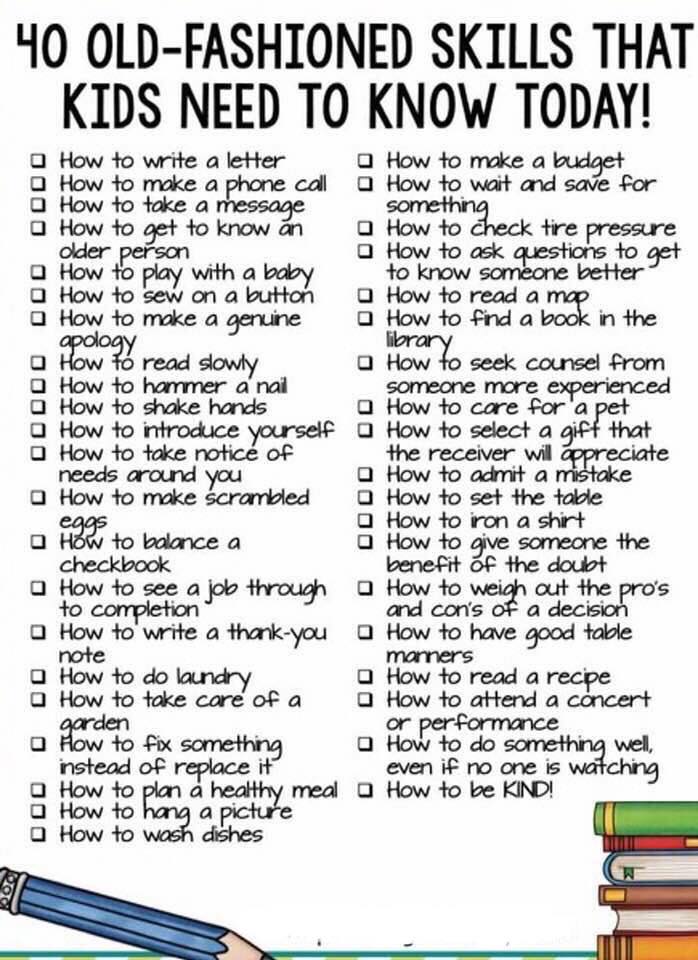Friday Faves – Go!
1) Beyond Grumpiness –A friend of mine pointed this blog to me today and it bumped its way to the top of my Faves. English professor Alan Jacobs mused about the grumpiness of old people. I don’t know when it happens and why exactly it happens, but it is something that has happened to me of late…and I don’t think I’m old enough yet for it to happen.
 Photo Credit: Stream
Photo Credit: Stream
Here’s a bit of what Dr. Jacobs says about grumpiness, but you should read his whole piece, especially if you’re finding yourself becoming grumpy (whatever age you are).
“I think the explanation for such widespread grumpiness is fairly simple…It’s not the big foul acts or horribly cruel words that do you in, it’s the slow drip drip drip of little annoyances that become over time a vast sea of frustration. Surely you’ve been there? You become exasperated by someone’s passing comment and when they are genuinely puzzled by your anger over so trivial a matter, you try to explain (apologetically, penitently, I hope) that it wouldn’t be a problem if this thing had happened once but it has happened a thousand times. It’s the repetition that kills you.” [Dr. Jacobs goes on to talk about the divisions on which we’ve taken sides give the sense of being new and revolutionary…and yet they are old divisions revisited.] “You can’t learn from the past if you don’t know what happened in it. So yeah, I’m gradually turning into a grumpy old man. Because nobody learns anything…” [About these things that divide us: We seem to care too much, or too little, or just plain not at all. Dr. Jacobs challenges us that only being truly loving people gives us the right to voice an opinion, and definitely not a shaming one.] “It’s a hard path to walk, this Way of avoiding both indifference and ‘the conscious impotence of rage / At human folly.’ But the hard path is the only real Way. (All the others circle back on themselves.) So I try every day to follow it. I don’t think I could manage even that if I did not have an Advocate to accompany me, to encourage me, and to guide me.” – Alan Jacobs, Beyond Grumpiness
Against Stupidity – Alan Jacobs
The Destructive Power of Grumbling and Complaining – Michael Brown
2) The Coming of Spring –March weather – “In like a lion, out like a lamb”. Of course, we’re only mid-way through March, but we have no more predictions of snow. Daffodils bloomed in snow last week, but the winds of March have blown all the rough weather away for now. I’m not rushing Spring, but it is such a beautiful and refreshing time of the year. Here are some pics of our March so far.
 Photo Credit: Kathryn Visneski (East Tennessee; we had this same snow but no captures of red cardinals in it.)
Photo Credit: Kathryn Visneski (East Tennessee; we had this same snow but no captures of red cardinals in it.)
3) Shame as our Personal Assistant – In Dr. Curt Thompson‘s excellent book The Soul of Shame: Retelling Stories We Believe About Ourselves, we find the intriguing term shame assistant.
Imagine having a personal assistant who means us only evil. Whispers in our ear of how we’re not prepared enough, not attractive enough, not smart enough…just not enough.
It’s hard not to believe what seems to be coming out of our own reasoned thinking. Maybe…just maybe…we’re not enough.
To defend ourselves, without consciously being aware, we armor up against those thoughts…protecting ourselves from being too exposed to others. Isolating ourselves. This hiding keeps us from community which we need the most in dealing with shame.
At times, we strike out against the shame. Either by punishing ourselves or by blaming someone else for the pain we feel. Again, this further isolates us from others…leaving us alone with the shame attendant of our lives.
There’s good news, though, Friend. See #4.
Shame: Your Inner Attendant – Katelyn Entz
Toxic Shame Has Its Own Neurobiology. The Gospel Offers a Cure – Werner Mischke
4) Vulnerability – Curt Thompson spends a chapter in his book on the remedy for shame. It is vulnerability. How do we convince ourselves, all armored up against being exposed that the path to healing is dropping the armor? Here’s the thing: armor or no, we are vulnerable. Period. Full stop. We can’t keep shame at a distance. It crouches at our mind’s door, ready at a moment’s notice, to destroy our peace…and diminish our relationships.
 Photo Credit: Curt Thompson MD, Instagram
Photo Credit: Curt Thompson MD, Instagram
“To be vulnerable is not first something we choose. It is something we are.”* We are vulnerable. It is our state of being. We spend an enormous amount of energy protecting it. We can be free of this.
*Being Known Podcast – Vulnerability – Season 1, Episode 3
You know how we teach little ones to say, “Please” and “Thank you”? These aren’t just practices of good manners. They are actually acknowledgements of our vulnerability from an early age. Little ones have to ask for what they can’t get on their own, and then they express gratitude that their need was seen and responded to.
Our willingness to be openly vulnerable within community moves us toward intimacy. “Vulnerability creates opportunity for connection.” When we don’t avail ourselves to these opportunities, we just stay in our protective armor. Opening up to a trusted friend or small group emboldens us to tell our stories and recognize that the stinging words of shame don’t belong to us. We matter. We are enough. Being able to share such things with people who will NOT leave the room gives us the courage to then be more vulnerable with others – like our boss, or professor, or estranged family member.
Dr. Thompson also talks about the other side of being vulnerable – when we are the ones others are being vulnerable with. We may want to move away from the awkwardness of that kind of disclosure. Or we may want to try to fix it which early on is more to help ourselves dealing with the discomfort than the one sharing. “What they most need from us is our empathic presence…” To lean in, to demonstrate that they are being seen, and to connect with them, and validate what they are feeling, to see them in whatever the hard is for them in being vulnerable. In the end, we may ask how we can be helpful but we don’t go right there in the immediate of their telling their story.
This is vulnerability and it moves us to healing, to community, and to joy.
5) Great Marriage Advice – Marriage…whew! Earlier in my adult life, I always cringed at the observation that marriage is work. It didn’t look like work, and having the opportunity to share life with your special person seemed more joy than labor. Then I got married.
It is joy and it is work…not in the dull, redundant sort of work we may have from time to time…but the challenging, invigorating, problem-solving, “in it to win it” kind of work.
I happened across a sweet thread on Jane Lewis’ Twitter page. She reached out to her followers for marriage wisdom. Lots of response!
Married women, I do not care if you’ve been married for six minutes or 60 years… Impart your wisdom on this thread for a future bride. ☺️✨
— Jane Lewis ?? (@janeelisabethh) March 19, 2022
Below are just some of them…the ones I especially found valuable:
“No one”……and I mean “no one” can read your mind!
Develop and maintain hobbies independent of each other AND protect the hobbies you do together.
Attack the problem, not the person.
Faith (if you are inclined that way), mutual respect, and honest, loving, open communication are the Big Three that get you through life together.
Don’t take the little things for granted.
There is a challenge to live connected but free with your spouse. I’ve read that your primary job in marriage is to protect your spouse from your control.
My advice is laugh a lot, kiss each other often, and pray for and with each other daily.
Forgive quickly and keep a short memory of the bad. Focus on the good and appreciate him immensely!
1. Communicate, communicate, communicate – not just about money, work, chores, kids or health, but also spirituality, fun, world events. 2. Each of you needs ‘me’ time. 3. Do something fun together every week. 4. Sex is great, but marriage is about more than that. 5. Communicate.
Seek to have a quiet heart each day. Thought today of Mary facing extreme excitement (Luke 1:18,19) and deep coming sorrow (Luke 1:35). The Lord is your Keeper in highs and lows.
Don’t criticize or complain about your spouse in public. Smile at the “husbands be like” jokes, but don’t contribute. Be honest & kind. Talk to each other about your problems, not to friends/family. Keep your own hobbies, bank account & bathroom if possible.
Don’t be easily offended. As John Bevere says in his book, it is “The Bate of Satan.”
Stay curious. Keep flirting. Never forget to tell him you appreciate his hard work…never forget the reasons why you fell in love with each other…never forget that you are on the same team.
Neither of you is the same person you will be in 5 years, 20 years, or 45 years. You’re each committing to the version of the person you love now, but you’re also committing to the many versions they will become.
As much as you love him and he loves you, know that you cannot completely fulfill him, nor he fulfill you…it’s unfair to put that burden on either and will only end in heartache.
Have close girlfriends. Be humble when you fight. Hold healthy boundaries. Learn how he processes. Let him be different than you. Stick. Bad times pass. Glorify God. Forgive. Remember marriage is a picture to help us understand Christ’s love for the church. Let that sink in.
Find ways to laugh together and always have compassion for one another.
Find a reason to laugh, fist bump or high five with your spouse everyday.
Mind who you talk about your marriage with and who you listen to about your marriage. There’s a lot of wisdom to be gained from others who have gone before, but there are also people who you shouldn’t let speak to your marriage.
My advice to a new bride- maintain your friendships.with your girlfriends. He does not want to chit chat, go shopping or do your hair the way your girlfriends do. Keep your girlfriends. He will be happier and so will you.
Hold to your integrity. Trust Jesus w everything. Listen deeply. Celebrate madly. Speak truth in love. Have fun! Pray together. Walk together. Hold hands. Let there be space in your togetherness. Let go & hold on.
Give dignity to your differences. Make adequate space for whatever conversation needs to happen. You’ll both still be there tomorrow, and few things are urgent. Have your own tubes of toothpaste.
An abbreviated quote by Camille Paglia: “Men have sacrificed and crippled themselves physically and emotionally to feed, house, and protect women and children. (But the world) portrays men as oppressive and callous exploiters.” Be understanding of his burden.
Talk through how you deal with money and come up with a budget you both agree on. One spouse can pay the bills but both of you should be aware of the state of your finances and financial goals.
You are the same team. In disagreements, in different skill sets and ways of communicating, you are all on the same team. Argue and forgive like teammates. Notice and applaud like teammates. Work out problems and brainstorm like teammates. We use “same team” as shorthand to stop ourselves when we disagree or misunderstand each other. Take a breath and explain what is going on. Learning to argue well, to listen well and be self-aware enough to give names to things and be heard. And give loads of grace.
@janeelisabethh, you have some wise women (and a couple of guys) in your Twitter world. People (and threads) like this are why I am still on Twitter.
 Coming up on 38 years with this guy.
Coming up on 38 years with this guy.
___________________________________________________________________________
Thanks for stopping by. It means a lot.
Bonuses:
 Photo Credit: Ann Voskamp, Tim Keller
Photo Credit: Ann Voskamp, Tim Keller
 Photo Credit: Instagram, Tim Keller NYC
Photo Credit: Instagram, Tim Keller NYC
10 Ways to Live Life to the Fullest After 60 – Rebecca Wilson












































 Photo Credit:
Photo Credit:  Photo Credit:
Photo Credit: 






































